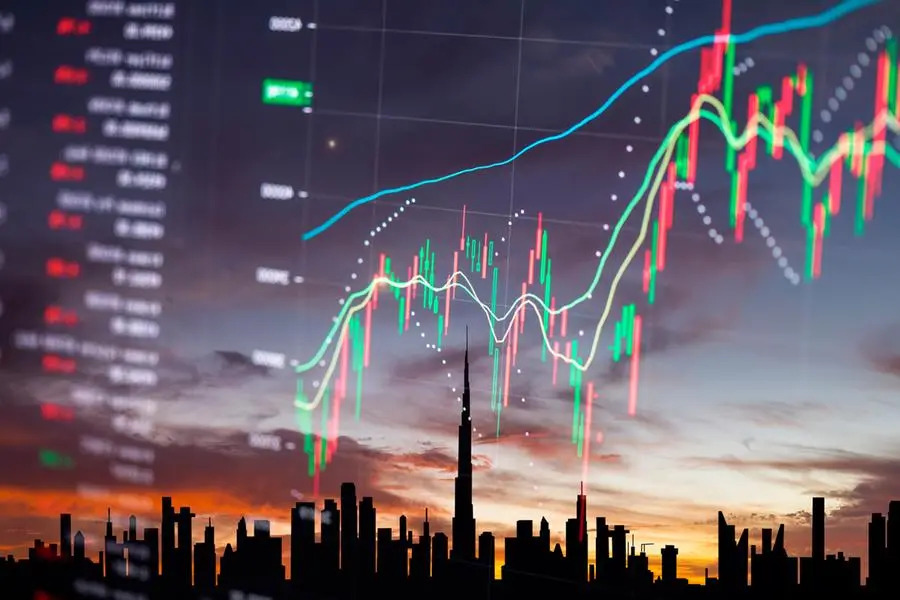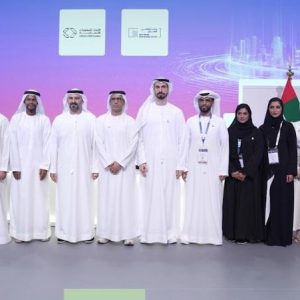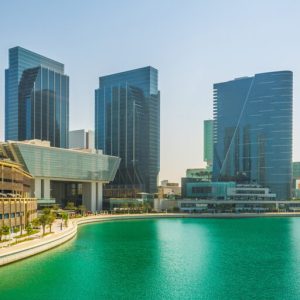The United Arab Emirates (UAE) continues to solidify its position as one of the world’s most dynamic economies. With robust growth across key sectors, strategic government initiatives, and a focus on diversification, the UAE economy remains resilient amid global challenges. Recent economic developments highlight the country’s commitment to innovation, sustainability, and foreign investment.
Economic Growth and GDP Performance
The UAE’s Gross Domestic Product (GDP) has shown significant expansion, driven by both oil and non-oil sectors. The nation’s strategic focus on economic diversification has resulted in a strong performance in areas such as technology, tourism, real estate, and manufacturing. According to recent data, the UAE’s GDP is expected to grow by around 3.5% to 4% in 2024, supported by:
- Increased government spending on infrastructure.
- Growth in non-oil trade and investment.
- Expansion of fintech, artificial intelligence (AI), and blockchain industries.
The economic recovery post-pandemic has been swift, with sectors such as aviation and logistics also seeing major rebounds. The UAE’s strategic location as a global trade hub has allowed it to benefit from increased global commerce, particularly in logistics, e-commerce, and high-tech manufacturing. Furthermore, the government’s proactive policies, including flexible visa regulations, reduced corporate tax incentives, and foreign ownership laws, continue to attract global investors.

Key Sectors Driving the UAE Economy
- Oil and Gas Sector
- The UAE remains a leading oil producer, with significant investments in sustainable energy.
- ADNOC continues to expand its operations, enhancing efficiency and output.
- The country’s transition towards cleaner energy solutions, including hydrogen and carbon capture, is gaining momentum.
- With oil prices fluctuating globally, the UAE has increased its strategic reserves and partnerships with key energy markets.
- Tourism and Hospitality
- Dubai and Abu Dhabi remain top global tourist destinations, with luxury resorts, cultural festivals, and world-class attractions driving visitor numbers.
- Major upcoming events, including Expo City Dubai projects, international sports tournaments, and film festivals, are expected to boost tourism further.
- The luxury hospitality sector is experiencing record growth, with new hotels and resorts opening across the Emirates.
- Government initiatives such as the “Visit Dubai” campaign and enhanced visa policies for travelers are strengthening tourism growth.
- Real Estate and Construction
- Property transactions have surged, with Dubai recording multi-billion-dollar sales in prime locations.
- Demand for high-end residential properties, commercial spaces, and smart city developments continues to rise.
- Sustainable construction practices and smart infrastructure projects are key focus areas, with developers integrating eco-friendly technologies into their projects.
- The government’s regulatory framework for real estate investments ensures long-term sustainability and transparency in the market.
- Technology and Digital Economy
- The UAE is emerging as a global tech hub, attracting major startups and multinational tech firms.
- Investments in AI, blockchain, and cloud computing are accelerating digital transformation across industries.
- The UAE’s push for a cashless economy and fintech advancements is reshaping the financial landscape, with digital banking and cryptocurrency platforms gaining popularity.
- Initiatives such as Dubai’s “Metaverse Strategy” and AI-driven projects highlight the country’s ambition to lead in digital innovation.
- Financial Services and Investment
- Dubai International Financial Centre (DIFC) and Abu Dhabi Global Market (ADGM) continue to attract global investors and financial institutions.
- The UAE has introduced new corporate tax regulations to align with global economic standards while maintaining its appeal as a tax-friendly business environment.
- Increased foreign direct investment (FDI) has been observed, particularly in sustainable finance, green bonds, and fintech.
- The introduction of digital currencies, blockchain-based trading platforms, and AI-driven financial tools are transforming the UAE’s banking sector.
Government Initiatives and Policies
The UAE government has launched several initiatives to boost economic resilience and attract global talent:
- Golden Visa Program: Attracting skilled professionals, entrepreneurs, and investors to contribute to long-term economic growth.
- UAE Industrial Strategy (Operation 300bn): Aiming to increase industrial production and technological innovation.
- Green Economy and Sustainability Plans: The UAE’s commitment to achieving net-zero emissions by 2050 through renewable energy projects such as solar and wind farms.
- Digital Transformation Roadmap: Expanding 5G infrastructure, smart city projects, and AI-driven public services.
- Economic Agreements with Global Partners: Strengthening trade relationships with Asia, Europe, and North America to expand export markets and enhance economic cooperation.
Additionally, the government has continued to support entrepreneurship and SMEs through funding initiatives, incubator programs, and reduced bureaucratic barriers to business setup.

Challenges Facing the UAE Economy
While the UAE economy is poised for continued growth, certain global and regional challenges remain:
- Geopolitical tensions and their impact on trade and investment, particularly with ongoing conflicts in global markets.
- Global inflation and interest rate hikes, affecting real estate, corporate borrowing costs, and consumer spending patterns.
- Competition from emerging markets, requiring continuous innovation and policy adaptation to retain investor confidence.
- Fluctuations in energy prices, influencing government revenues and investment strategies.
- Climate change and sustainability mandates, pushing industries to adopt more eco-friendly practices while balancing economic growth.
To counter these challenges, the UAE is actively working on strengthening its economic resilience through diversified revenue streams, increased investment in renewable energy, and enhanced global partnerships.
Future Outlook and Economic Projections
Despite global economic uncertainties, the UAE remains optimistic about sustained economic growth in the coming years. The country’s focus on:
- Artificial Intelligence and Automation: Integrating AI into multiple industries to enhance productivity and efficiency.
- Renewable Energy Investments: Expanding solar and wind energy projects to reduce dependence on oil revenue.
- Expansion of Free Zones: Encouraging business formation through tax incentives, easy licensing, and reduced regulations.
- Global Trade and Logistics: Strengthening ports and transportation networks to maintain the UAE’s position as a leading trade hub.
- Increased Foreign Investments: Government initiatives continue to attract businesses, entrepreneurs, and multinational corporations to set up headquarters in the UAE.
As the UAE moves toward its Vision 2030 and Vision 2050 goals, its economy is set to evolve into a globally integrated, technologically advanced, and environmentally sustainable powerhouse.
Conclusion
The UAE’s economy continues to thrive, with key sectors driving growth, strategic government policies fostering innovation, and an optimistic outlook for investors and businesses. As the nation embraces economic transformation, it stands as a model of resilience and progress in the global economy. With forward-thinking policies, cutting-edge technological investments, and sustainable development, the UAE is well-positioned to maintain its status as one of the world’s most competitive and dynamic economies.
Do follow Uae stories for more Updates
Al Hadheerah: Dubai’s Ultimate Desert Dining With Live Entertainment














